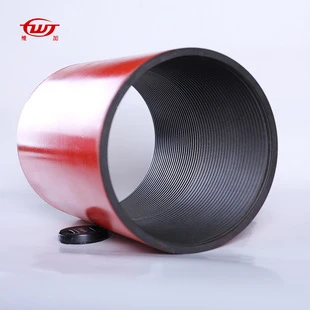- Afrikaans
- Albanian
- Amharic
- Arabic
- Armenian
- Azerbaijani
- Basque
- Belarusian
- Bengali
- Bosnian
- Bulgarian
- Catalan
- Cebuano
- Corsican
- Croatian
- Czech
- Danish
- Dutch
- English
- Esperanto
- Estonian
- Finnish
- French
- Frisian
- Galician
- Georgian
- German
- Greek
- Gujarati
- Haitian Creole
- hausa
- hawaiian
- Hebrew
- Hindi
- Miao
- Hungarian
- Icelandic
- igbo
- Indonesian
- irish
- Italian
- Japanese
- Javanese
- Kannada
- kazakh
- Khmer
- Rwandese
- Korean
- Kurdish
- Kyrgyz
- Lao
- Latin
- Latvian
- Lithuanian
- Luxembourgish
- Macedonian
- Malgashi
- Malay
- Malayalam
- Maltese
- Maori
- Marathi
- Mongolian
- Myanmar
- Nepali
- Norwegian
- Norwegian
- Occitan
- Pashto
- Persian
- Polish
- Portuguese
- Punjabi
- Romanian
- Russian
- Samoan
- Scottish Gaelic
- Serbian
- Sesotho
- Shona
- Sindhi
- Sinhala
- Slovak
- Slovenian
- Somali
- Spanish
- Sundanese
- Swahili
- Swedish
- Tagalog
- Tajik
- Tamil
- Tatar
- Telugu
- Thai
- Turkish
- Turkmen
- Ukrainian
- Urdu
- Uighur
- Uzbek
- Vietnamese
- Welsh
- Bantu
- Yiddish
- Yoruba
- Zulu
Exploring Casing Collar Technologies for Enhanced Oil and Gas Well Performance
Understanding Casing Collars in Oil and Gas Drilling
In the oil and gas industry, one of the fundamental processes involved in extracting hydrocarbons from underground reservoirs is drilling. A critical component of this process is casing, which involves installing a series of steel pipes to stabilize the borehole and prevent it from collapsing. Among the various tools and equipment used in this process, casing collars play a crucial role.
Casing collars, often referred to as casing coupling or casing accessories, are specialized connectors that join sections of casing together. These collars are typically made from high-strength steel and are designed to withstand the extreme conditions encountered during drilling and production. The primary function of casing collars is to provide a secure mechanical connection between individual casing lengths, ensuring integrity and durability throughout the drilling process.
The design and manufacturing of casing collars must adhere to strict industry standards due to the high pressures and temperatures encountered in sub-surface environments. Various types of casing collars are available, including threaded, welded, and slip collars. The choice of collar type depends on several factors, including the specific characteristics of the well, the environment, and the operational requirements.
One of the most common types of casing collar is the threaded collar, which features male and female threads that allow for easy connection and disconnection of the casing sections. This design facilitates quick assembly and disassembly during drilling operations, which is crucial for addressing any unforeseen challenges that may arise while drilling. Additionally, threaded collars can often be customized to achieve specific strength and compatibility requirements.
casing collar

Welded collars are another popular option, offering greater strength in situations where high-pressure conditions are expected. In this design, the casing sections are permanently joined by welding, creating a robust and leak-proof connection. This type of collar is ideal for deepwater drilling or in regions with challenging geological formations, where the risk of casing failure needs to be minimized.
Slip collars, on the other hand, utilize a slip mechanism to provide added support and stability. These collars are designed to grip the casing tightly, preventing movement that could result in structural failure. Slip collars are beneficial in scenarios where there is a risk of the casing becoming loose due to shifting geological formations or excessive pressure.
In addition to their basic connecting function, casing collars also play a vital role in facilitating other critical operations during drilling, such as cementing. The cementing process involves injecting cement into the space between the casing and the borehole wall to provide additional support and prevent fluid migration. Casing collars are strategically placed to allow for proper cement distribution and to ensure a secure bond between the casing and the surrounding rock formation.
Proper installation and maintenance of casing collars are essential to the overall success and safety of drilling operations. Regular inspections and adherence to industry best practices can help prevent casing failures, which can lead to significant operational delays and financial losses.
In conclusion, casing collars are a fundamental component in oil and gas drilling, providing essential support and security to the casing system. Their various designs and functionalities accommodate a wide range of drilling conditions and challenges, making them indispensable tools in the pursuit of hydrocarbon extraction. As technology continues to advance, the design and application of casing collars will likely evolve, further enhancing drilling efficiency and safety in the industry.
-
Tubing Pup Joints: Essential Components for Oil and Gas OperationsNewsJul.10,2025
-
Pup Joints: Essential Components for Reliable Drilling OperationsNewsJul.10,2025
-
Pipe Couplings: Connecting Your World EfficientlyNewsJul.10,2025
-
Mastering Oilfield Operations with Quality Tubing and CasingNewsJul.10,2025
-
High-Quality Casing Couplings for Every NeedNewsJul.10,2025
-
Boost Your Drilling Efficiency with Premium Crossover Tools & Seating NipplesNewsJul.10,2025







